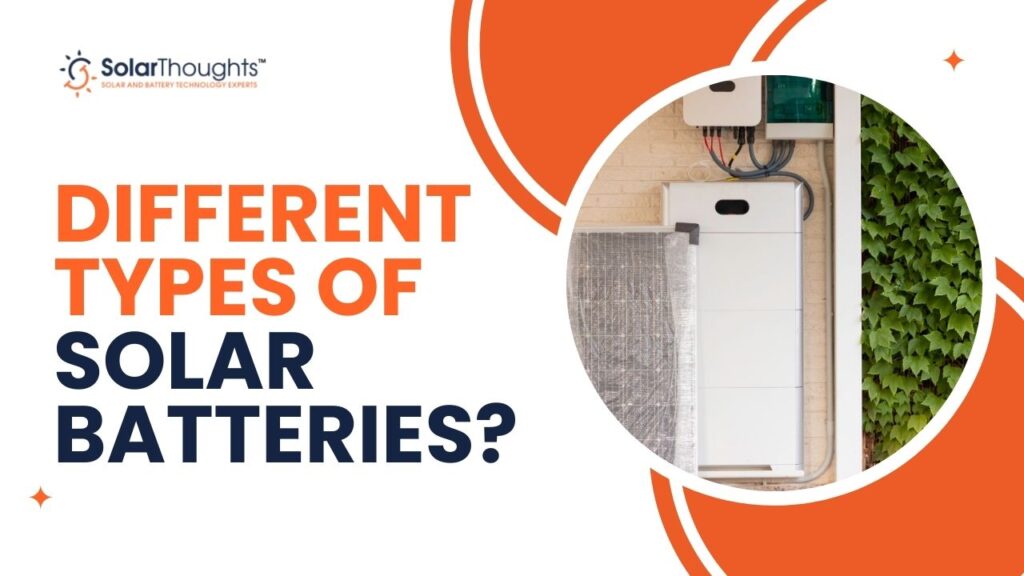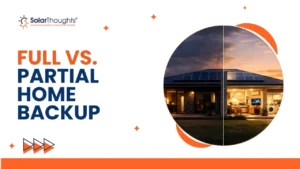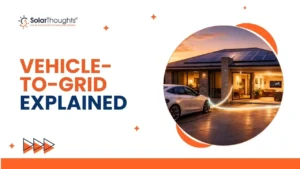Introduction
While the world is moving towards renewable energy, solar power has taken the lead in the push for sustainable living. But because solar energy can be intermittent, it’s very important to have a good storage solution. Here come solar batteries – they let you use sun power all day and night. In this all-inclusive guide on What Are The Different Types Of Solar Batteries, we will look into the four main kinds of solar batteries. We’ll concentrate on what makes each type special and beneficial for you as a homeowner or business owner so that you can choose wisely when setting up or improving your solar power setup system.
Table of Contents
Toggle
What Are The Different Types Of Solar Batteries?
Solar energy systems usually use one out of four main kinds of batteries: lead acid, lithium-ion, nickel cadmium and flow batteries. Every kind has its own benefits and is suitable for certain requirements of storing energy. It is important to know the features characteristic of each type before selecting a battery.
I. Lead Acid Batteries
Lead-acid batteries are a very tested technology, they have been used in the solar industry for many years. These batteries bring with them some benefits like initial low costs and consistent functioning. Even if they demand more care compared to lithium-ion type of battery, lead acid batteries still provide an affordable choice for people who want reliable storage of energy solutions.
One significant advantage of lead acid batteries is their strong ability to endure deep discharge cycles, which makes them a good option for off-grid solar systems or locations with frequent power shortage situations. Moreover, these batteries can also manage high surge currents well, thus being suitable to run appliances that require lots of energy.
II. Lithium Ion Batteries
Lithium ion batteries are a breakthrough in the market for saving solar energy. These new batteries have a longer life span and need less upkeep compared to old-style lead acid ones. They can store more power per unit volume due to their high energy density, which makes them appealing for both home-based or business-related sunlight-collecting systems.
A key characteristic of lithium ion batteries is their capacity to go through multiple charge-discharge cycles without major wear and tear. This leads to a longer lifespan overall, lessening the requirement for frequent renewals and decreasing expenses in the long run. These batteries also provide better effectiveness or efficiency because they can make more saved energy accessible for utilization.
III. Nickel Cadmium Batteries
For home use, lithium-ion batteries have become the standard choice. They are known for their long lifespan, high energy density, and ability to discharge at a steady rate. Other types of batteries like lead-acid or saltwater may be less expensive initially but they require more maintenance over time due to lower cycle life and capacity retention. In big solar projects that are for business purposes, we often see nickel cadmium batteries being used. These kinds of batteries can work well in very hot or cold conditions and they also last for a long time. In homes, lithium-ion type is popular because it has good life duration with high energy concentration and has ability to discharge steadily all the way until end point. Other sorts such as lead-acid or saltwater might cost less at first but need extra upkeep due to less cycle life and capacity preservation over period of usage.
Nickel cadmium batteries do not need complicated battery management systems. This makes the whole solar energy system less complex and easier to maintain. They can work for a long time, often more than 20 years if you take care of them well.
iV. Flow Batteries
Flow batteries, also called redox flow batteries, are an uncommon variety of energy storage. These batteries stow power in liquid electrolyte solutions, which makes them simple to increase or decrease in size and capacity.
Even though the initial expense of flow batteries is more, they provide many advantages for solar projects at utility scale or in industrial settings. These types can discharge and recharge repeatedly without serious loss in capacity which makes them good choices for applications needing frequent cycling. Moreover, flow batteries have a long lifespan and usually last more than 20 years with proper upkeep.
Searching for the best solar panel installation service in Brisbane? Discover the top choices by reading our blog on the Top 10 Solar Panel Installers in Brisbane.
Conclusion
In the solar energy field, as it continues to grow and change, picking a good solar battery becomes very crucial for assuring your system is running at its best. If you’re someone who owns a house and wants an affordable solution or if you have business plans that need large-scale energy storage capacity, understanding every type of battery’s special features and benefits is essential when considering “What Are The Different Types Of Solar Batteries?” Lead-acid batteries, lithium-ion batteries, nickel-cadmium batteries and flow batteries all come with their unique characteristics which makes them suitable for different needs in terms of energy storage. It’s important to know these things before deciding on what type of battery will work best for your situation.
Lead acid batteries are a strong and cheap choice, lithium ion batteries have a long life span and high energy density. Nickel cadmium batteries work well in tough conditions and flow batteries are good for large utility projects. The best selection will rely on your unique energy requirements, money you can spend, and the environment where it will be used.
In the ongoing shift towards renewable energy, solar batteries play a crucial part in guaranteeing a steady and dependable power provision. By choosing the right battery for your solar energy system wisely, you’ll increase your investment and help create an environment-friendly future that can last for many generations.
To join in the future of being self-sufficient with energy, put up a solar battery system now. Speak to our professionals at Solar Thoughts™ about using the sun’s power all day and night.





